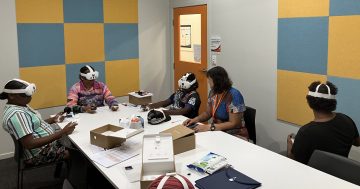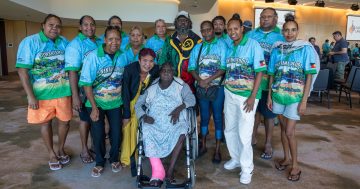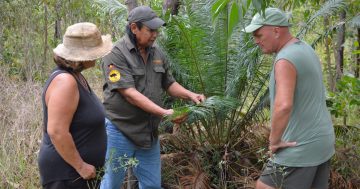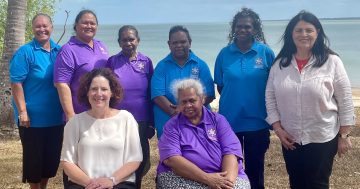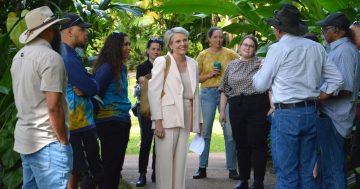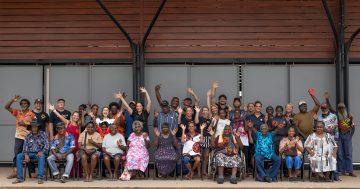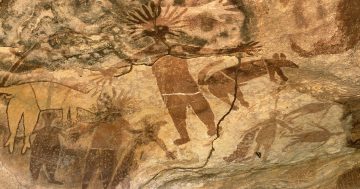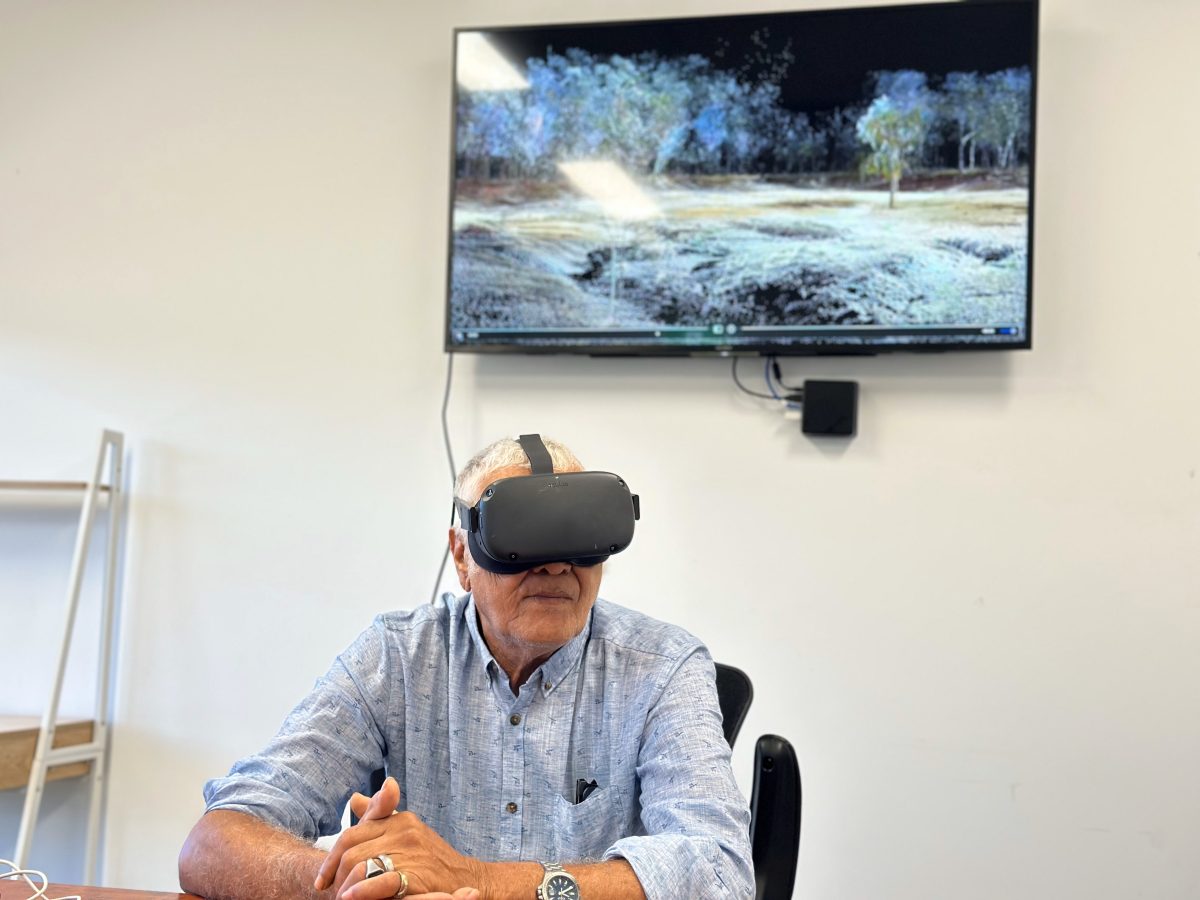
Olkola Elders Uncle Mike and Uncle Jack recorded the virtual on Country experience on the Nukakurra walking trail. Photo: Olkola Aboriginal Corporation.
The Olkola people gained their land back through a native title claim in 2014 and are now using digital technology, such as virtual reality and augmented reality to capture their cultural stories.
The Getting Back on Country project is led by Traditional Owners of the Olkola Aboriginal Corporation (OAC) and the Olkola Rangers in collaboration with researchers at the University of Melbourne.
Olkola Traditional Owner and OAC administration and finance officer Shania Ross said it was a way to bring Country to people who can no longer get out there.
“We have a lot of people that are starting to get older and travelling out to Country just isn’t possible for some people,” she explained.
The virtual reality 3D storytelling has the possibility of helping Traditional Owners with dementia or disabilities experience being on Country again.
“Like our great-grandmother, she had dementia. When she was starting to get on she’d talk a lot about her childhood living and walking on Country, that’s what made her happy,” she said.
“It’s one of those things that can just help with their mental state. They can go home without having to sit in a car for five or six hours.”
The collaboration began with Nukakurra walking trail, a cultural story place with a loop walk that passes several Olkola significant sites.
“We know our old people used to go all the time and walk. For the project recording, we had two of our Elders walking around and telling stories.”
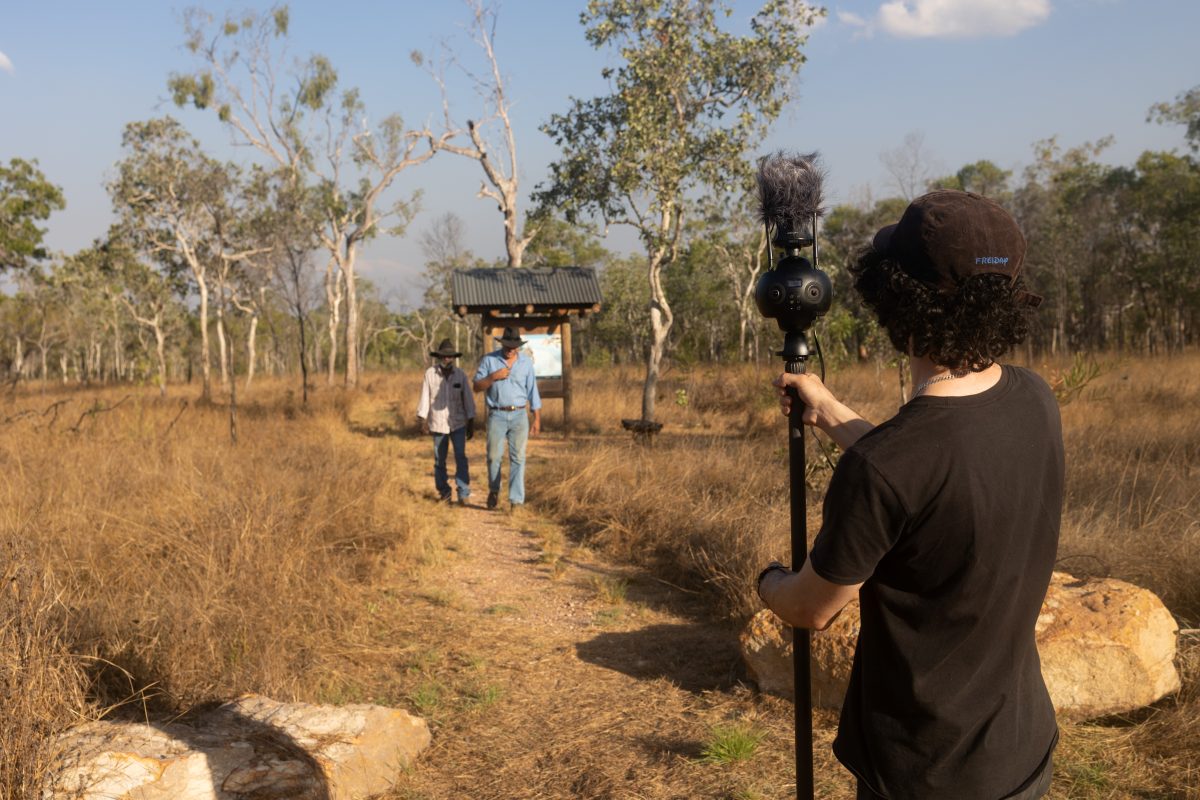
Olkola Elders Uncle Mike and Uncle Jack recorded the virtual on Country experience on the Nukakurra walking trail. Photo: Olkola Aboriginal Corporation.
One of the Elders, Uncle Mike, created a story of a grandfather and grandmother walking the Country with their grandchildren and sharing their knowledge – just as it would have happened prior to colonisation. The other, Uncle Jack, told the story in language.
“We hoped that by being able to put the goggles on and do the trail, it would immortalise Country for people who can’t travel out,” she explained.
The digitised stories, as well as Olkola artefacts, are to be kept and shared at the Cultural Knowledge Centre to be built on Country.
She explained that some culturally sensitive places would be just for Olkola people, while others could be shared and used to help Olkola tourism.


